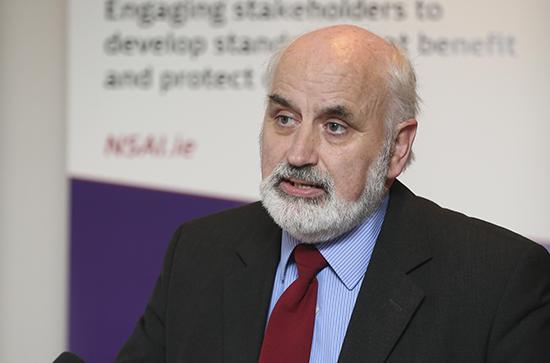Qualification : MICRO-CREDENTIAL (9)
Award Type and NFQ level : MICRO-CREDENTIAL
CAO/MU Apply code : MMC23;MMC25
CAO Points :
Closing Date : 18 May 2025
Webinar: Join Michael Hanley, Head of Education at the Innovation Value Institute at Maynooth University, for an online information session on Thursday 24th April at 1pm. Please register here.
The Spring 2025 delivery of this course is approved for the HCI Pillar 3 50% Learner Fee Subsidy. For more information see our webpage.
Plus Enjoy Free Access to the IVI Summit 2025 (worth 250 EUR) where you will join experienced industry leaders, policy makers and academic speakers as they explore this year's theme "What's possible by 2030? Accelerate change with responsible and fair use of data, digital and AI". Learn more about the Summit here.
Overview
Successful digital adoption remains the greatest challenge for organisations: 70% of digital transformation efforts fail. The Leading Digital Transformation in Organisations micro-credential programme is designed to provide the knowledge, skills, and confidence to help build a sustainable and successful organisational digital transformation programme.
The programme explores the fundamentals of digital transformation, approaches to change leadership, effective change management, and organisation capability improvement. It will introduce you to the cultural, structural, and technology dynamics of digital transition, and focus on improving the business value outcomes of transformation in organisations. It provides you with a critical understanding of the major benefits and challenges associated with the management and execution of digital transformation initiatives. The Digital Transformation Workshops component of the programme add value by providing effective methods, tools, and techniques to equip you with the right skills and innovation mindset to lead effective organisation change in a challenging environment, helping to build a sustainable and successful future. Innovations might include: New service innovation; Refining and improving existing platforms; Moving products and services online; Developing and implementing business value propositions; using the digital advantage to sustain and grow; Using digital to manage the customer experience.
This 6-week course will equip you with the knowledge, skills, and strategies to become a digital transformation leader in your field. You will leverage the latest research, practices, case studies and techniques to improve organisational effectiveness. You will engage in pragmatic, hands-on activities to deepen your ability to effectively lead digital transformation programmes from planning through to value realisation. Learn how to lead transformation initiatives that provide value to your organisation. Leverage data, machine learning, and artificial intelligence to boost new service innovation; improving existing products; moving products and services online; developing and implementing agile operating and business models; using the digital advantage to sustain and grow your firm; using technology to enable the customer experience.
Note: On successful completion of this micro-credential you will receive credits as per the European Credit and Transfer System. These credits are recognised by Maynooth University as credits aligned to learning completed at postgraduate level.
Level: Aligned to NFQ Level 9
ECTS: 5
Fee: 2,000 EUR
Applicants should hold at a minimum a 2:2 grade National Framework of Qualifications Honours (Level 8) award or an equivalent international qualification in a relevant discipline.
Applicants who do not hold a primary or higher degree but have sufficient and relevant professional experience are also welcome to apply. Please see our Recognition of Prior Learning (RPL) webpage for further information. Applicants who wish to apply via RPL must submit a completed copy of the RPL form along with any supporting documentation with their application.
For more information on the minimum English language requirements, please refer to the Language Competencies section of the Maynooth University Micro-credentials Entry Requirements and the English Language Requirements tab here for the tests and scores that are accepted.

Academic

Academic

Academic
Department of School of Business
Department of Hamilton Institute
Department of Innovation Value Institute (IVI)
This course will be delivered through blended delivery (online and on-campus). Each online session is a 4-hour block from 1-5pm on Wednesday afternoons; the final two sessions are 6 hour face-to-face design thinking workshops hosted in Maynooth University.
June 2025 Course Delivery:
| Date |
Duration (hrs) |
Time |
Format |
Modality | Location |
| Wed 11th June 2025 |
4 |
1pm-5pm | Lecture | Hybrid (includes access to IVI's Summer Summit 2025) | Microsoft Teams & Maynooth University - IVI Training Room 238 |
| Wed 18th June 2025 |
4 |
1pm-5pm | Lecture | Online | Microsoft Teams |
| Wed 25th June 2025 |
4 |
1pm-5pm | Lecture | Online | Microsoft Teams |
| Wed 2nd July 2025 |
4 |
1pm-5pm | Lecture | Online | Microsoft Teams |
| Wed 9th July 2025 |
6 |
10am-4pm | Project Workshop | Onsite | Maynooth University - IVI Training Room 238 |
| Wed 16th July 2025 |
6 |
10am-4pm | Project Workshop | Onsite | Maynooth University - IVI Training Room 238 |
Learning Outcomes
On successful completion of the course, you should be able to:
- Describe the business value of digital transformation in the context of organisation change.
- Use standard business analysis tools and techniques to measure current digital capability maturity within organisations.
- Critically analyse and interpret qualitative and quantitative research data to diagnose organisational digital capability gaps.
- Innovate digital processes, solutions and services by applying design thinking methods.
Online application only. To make an application please click here.
The following documents should be uploaded to your online application form:
- Valid passport / passport card OR birth certificate.
- Official University Degree Parchment or Transcript (if applying with a qualification). In such cases, the Transcript / Parchment must include full name, name of the qualification, conferring date and name of awarding body.
- Recognition of Prior Learning (RPL) application form (if applying as a professional with relevant experience).
- Proof of English language competency (where relevant).
Note: failure to provide all necessary documents will result in a delay to your application being processed.

